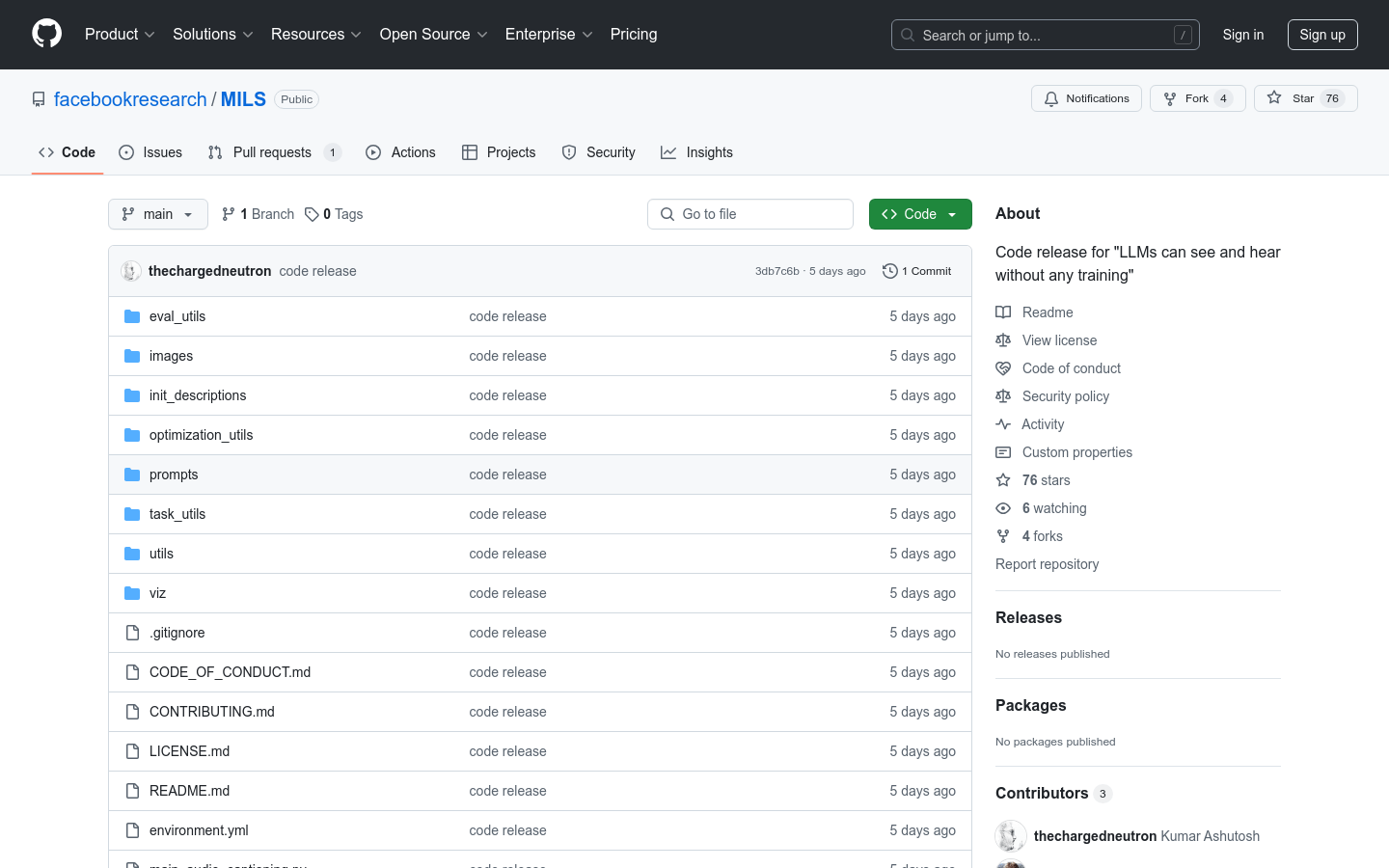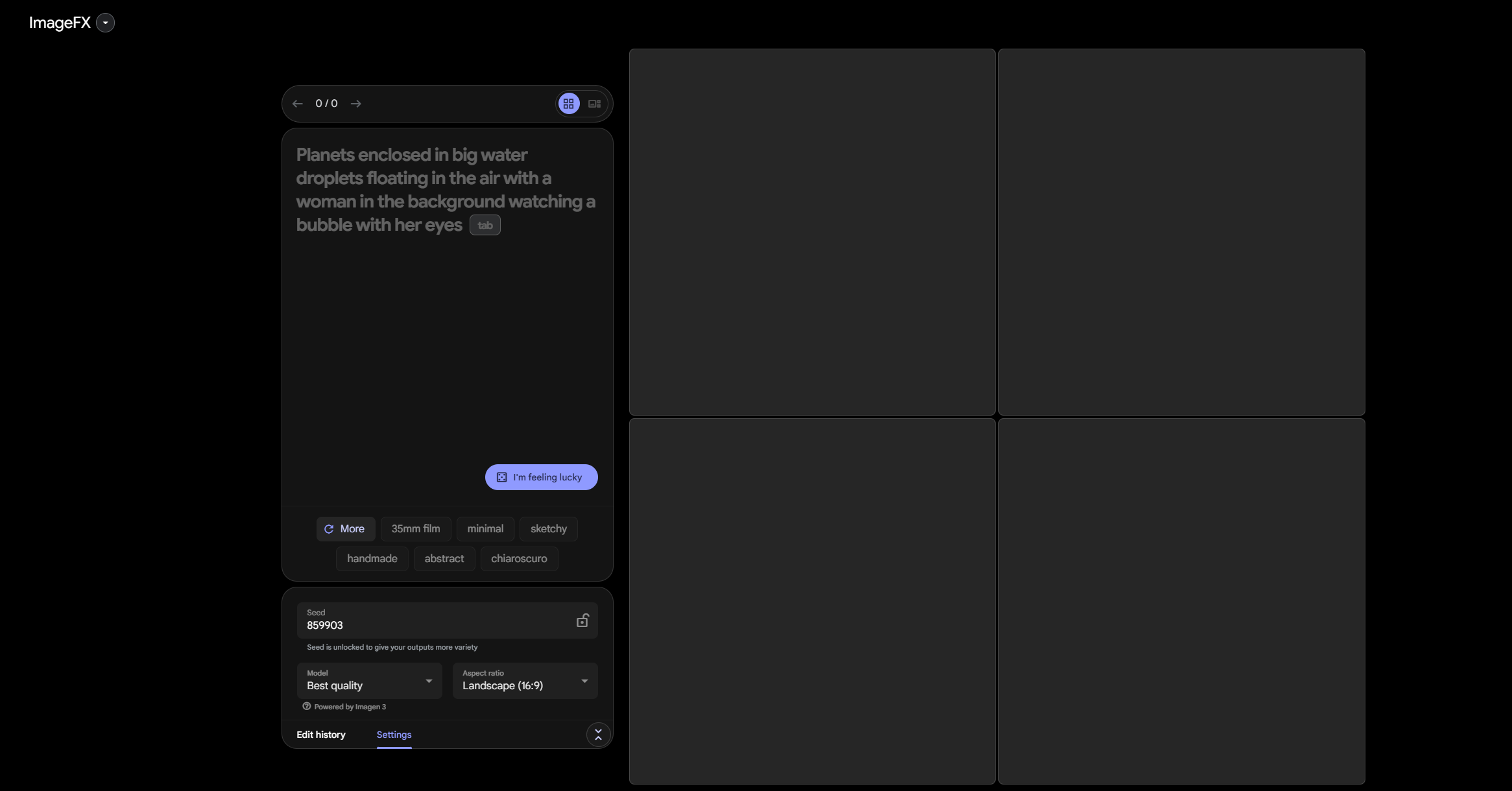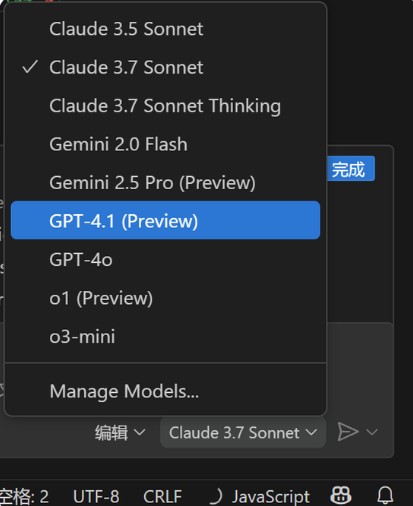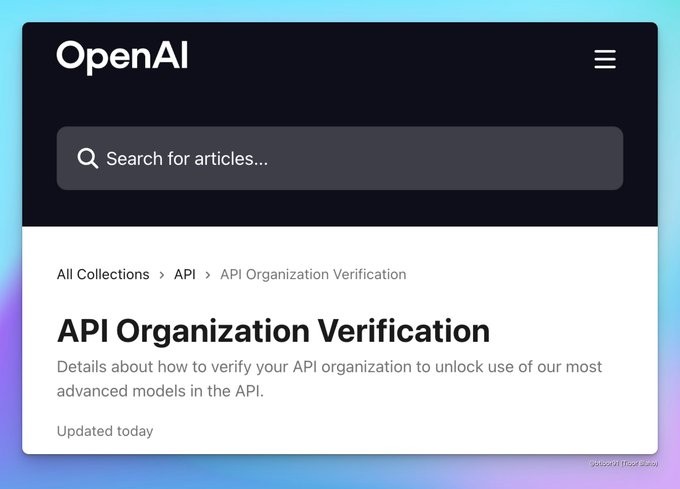
What is MILS?
MILS is an open-source project from Facebook Research that showcases how large language models can handle visual and auditory tasks without specific training. This project uses pre-trained models and optimization algorithms to automatically generate descriptions for images, audio, and videos. It represents a significant advancement in multimodal AI, demonstrating the potential of large language models in cross-modal tasks. The technology is aimed at researchers and developers who are interested in exploring new applications in multimodal AI.
Who Can Benefit from MILS?
This product is ideal for artificial intelligence researchers, developers, and professionals interested in multimodal generation tasks. It provides researchers with a powerful tool to explore and develop new multimodal applications and offers developers ready-to-use code and models to quickly implement related functionalities.
Example Usage Scenarios
Use MILS to generate descriptions for images in the MS-COCO dataset.
Generate descriptions for audio files in the Clotho dataset.
Create descriptions for videos in the MSR-VTT dataset.
Key Features of MILS
Supports automatic description generation for images, audio, and videos.
Optimizes performance across different modalities using pre-trained models.
Provides example code for various tasks such as image, audio, and video captioning.
Supports multi-GPU parallel processing to enhance efficiency.
Offers detailed installation and usage guides for easy onboarding.
Getting Started with MILS
1. Install the required dependencies by running conda env create -f environment.yml and activate the environment.
2. Download and extract the necessary datasets (images, audio, and video) to the specified directories.
3. Update the paths in the paths.py file to set the locations of the datasets and output directories.
4. Choose the appropriate script based on your task and run it. For example, use mainimagecaptioning.py for image description generation.
5. Evaluate the generated results using scripts that calculate performance metrics like BLEU and METEOR.







